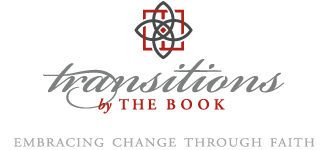For the past several days, I have been writing about space events that I recalled from my childhood. But there is at least one other noteworthy event that occurred on an April 13th. And it happened far before there was any space program. In fact, it happened before the U.S. became a country.
For on this date in 1742, Handel’s Messiah was first performed. And it has become a staple of our Christmas celebrations – to the point that we think something is missing from our Christmas Eve services if we don’t hear the chorus to this great hymn. In fact, we are trained to stand up when we hear it belted out by the choir, or as in the case last year, when videos of impromptu performances in Macy’s (Philadelphia) or food courts appeared on YouTube and went viral.
But to me, the real mystery of the whole deal is the word “Hallelujah”. We sing it with wild abandon, but what does it mean? When good things happen to us, we say, “Hallelujah.” But, like so many other things we take for granted, we really don’t understand the history of the word. Well, it was one of the things I had to study in seminary, and it turns out, there is a greater history to it than you think.
In the ancient times, when the Hebrew scribes referred to God, the word they used was Yahweh (we think it was pronounced yah-way). In fact, it was represented by four characters (YHWH), called the secret tetragrammaton, and whenever the word was written by the scribes, they had to break their “pencil” and start writing the next word with a new writing instrument. The word YHWH was so sacred that you could never utter it out loud, and whenever someone came across it in the text, instead of trying to pronounce the word itself, the person would substitute another Hebrew word that meant simply, “the word.” So, nobody ever heard YHWH actually spoken. But notice that the characters would approximate the pronunciation of Yahweh. And the meaning of Yahweh meant Jehovah God, or Lord. So it was a mighty important word. And to be truthful, since it was never spoken, we don’t how know the original Yahweh was ever meant to be pronounced.
And that brings us to the word “Hallelujah”, which is actually a combination of three different elements – Hallel-u-jah. The first part of the word, “Hallel” means “a joyous song of praise or prayer” – and the letter “u” after “Hallel” means it is a command to “you people”. So far, we have, “you people, sing a prayer of praise”, but to who? Therein lies the cool part of this whole word – for the song of praise is to be sung to “Jah”, and since “J’s” were pronounced at “Y’s”, the praise was to be sung to “Yah” – or the shortened, speakable, first syllable of Yahweh, which also happens to be the way the first two letters of YH-WH would be pronounced, if it could be spoken.
So, putting it all together, we have, “all you people, sing a prayer of praise to the supreme LORD (God)”. And isn’t that exactly what we do when we sing “Hallelujah”? Oh, and by the way, that word LORD, which you always see capitalized in your Bible, is a title of position, and of power and of authority. So it is a really big deal!
So, the next time you sing Handel’s Messiah – catch the reference to LORD in the title “Messiah” – and you get to the chorus, put a little extra punch in it – because you are singing a personal prayer of praise to the supreme LORD of everything! And the command is that all the people do it – remember – a command! No wonder we all stand up when we hear the chorus. And now you know why.
Now, for those of you who say the word is really Alleluia, it is – in the Latin form, but not the original form. So there you have it – the history of one of the greatest praise words in the English language, which we sing without thinking about too much about it. And sometime, when the mood hits, I will delve into the three New Testament verses that form the basis for the chorus – all from Revelation – 19:6, 11:5, and 19:16; but that is for another time – maybe even a little mini-series toward Christmas.
For now, my encouragement tonight is that God is waiting for you to sing words of praise to Him, and I hope that you will honor God with your songs. And my prayer is that you will really think about the supreme LORD of the universe every time you sing these words of praise. I don’t know about you, but I can’t wait to hear, or sing, Handel’s Messiah next time. Praise the LORD!
